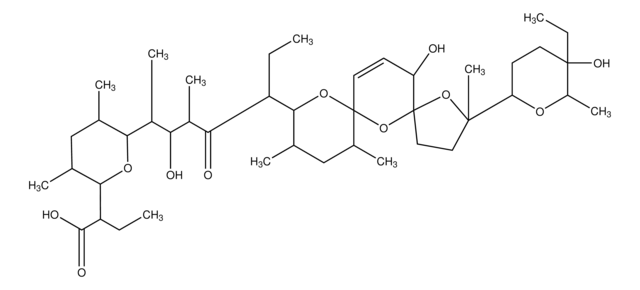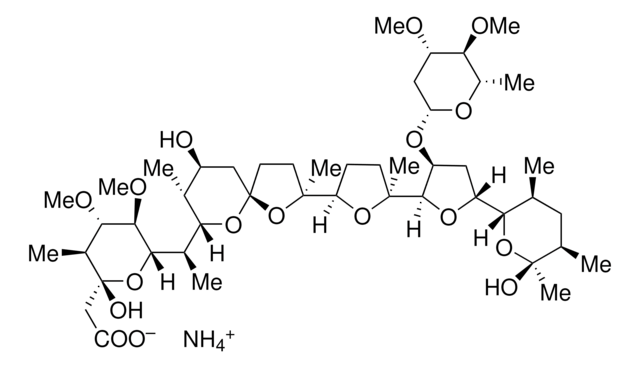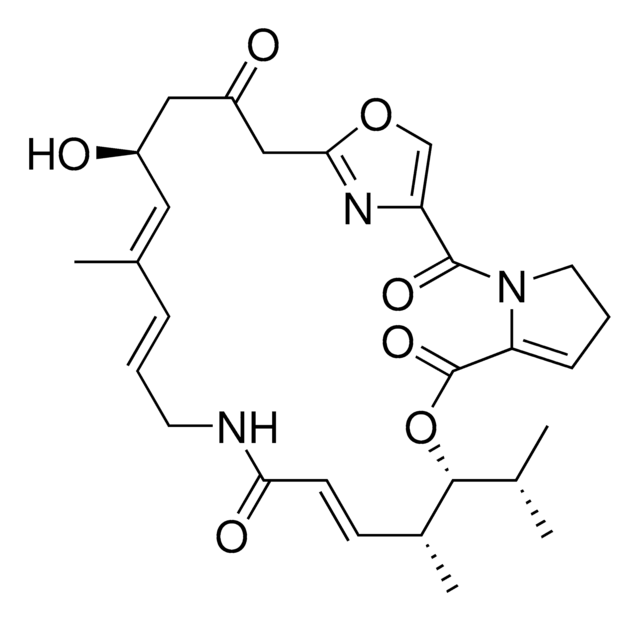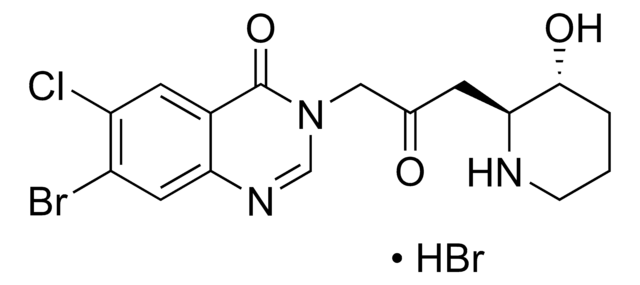N1271
Narasin from Streptomyces auriofaciens
≥98% (HPLC)
Synonym(s):
4-methylsalinomycin, Monteban, narasin A
About This Item
Recommended Products
Quality Level
Assay
≥98% (HPLC)
form
powder
solubility
methanol: soluble 20 mg/mL
antibiotic activity spectrum
Gram-positive bacteria
fungi
viruses
Mode of action
cell membrane | interferes
storage temp.
−20°C
SMILES string
CCC(C1OC(C(C)CC1C)C(C)C(O)C(C)C(=O)C(CC)C2OC3(OC4(CCC(C)(O4)C5CCC(O)(CC)C(C)O5)C(O)C=C3)C(C)CC2C)C(O)=O
InChI
1S/C43H72O11/c1-12-30(35(46)27(8)34(45)28(9)36-23(4)21-24(5)37(51-36)31(13-2)39(47)48)38-25(6)22-26(7)42(52-38)18-15-32(44)43(54-42)20-19-40(11,53-43)33-16-17-41(49,14-3)29(10)50-33/h15,18,23-34,36-38,44-45,49H,12-14,16-17,19-22H2,1-11H3,(H,47,48)
InChI key
VHKXXVVRRDYCIK-UHFFFAOYSA-N
Application
Biochem/physiol Actions
Signal Word
Danger
Hazard Statements
Precautionary Statements
Hazard Classifications
Acute Tox. 2 Oral
Storage Class Code
6.1A - Combustible acute toxic Cat. 1 and 2 / very toxic hazardous materials
WGK
WGK 3
Flash Point(F)
Not applicable
Flash Point(C)
Not applicable
Personal Protective Equipment
Certificates of Analysis (COA)
Search for Certificates of Analysis (COA) by entering the products Lot/Batch Number. Lot and Batch Numbers can be found on a product’s label following the words ‘Lot’ or ‘Batch’.
Already Own This Product?
Find documentation for the products that you have recently purchased in the Document Library.
Customers Also Viewed
Our team of scientists has experience in all areas of research including Life Science, Material Science, Chemical Synthesis, Chromatography, Analytical and many others.
Contact Technical Service
















